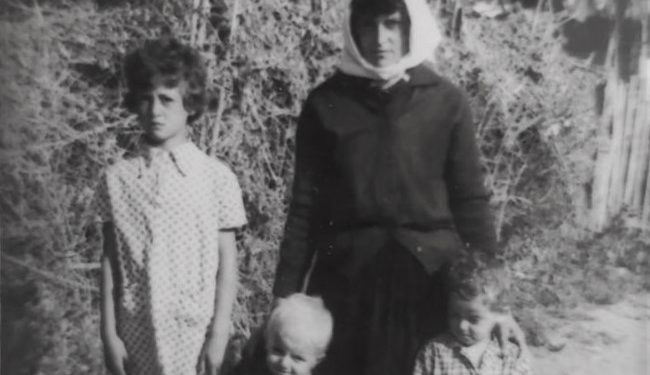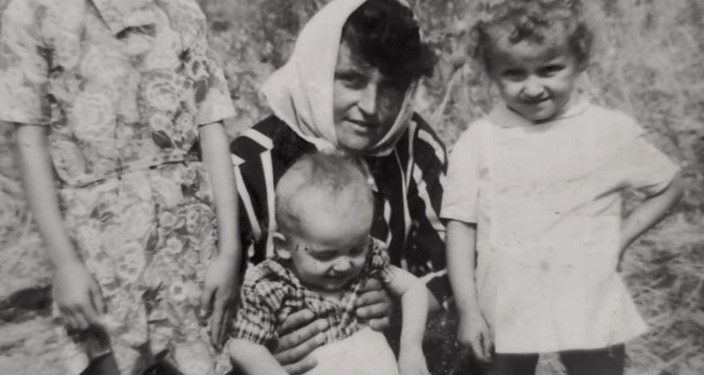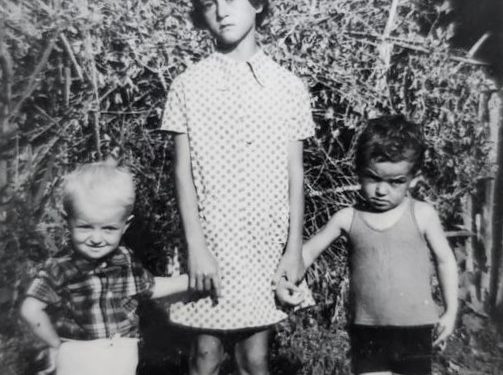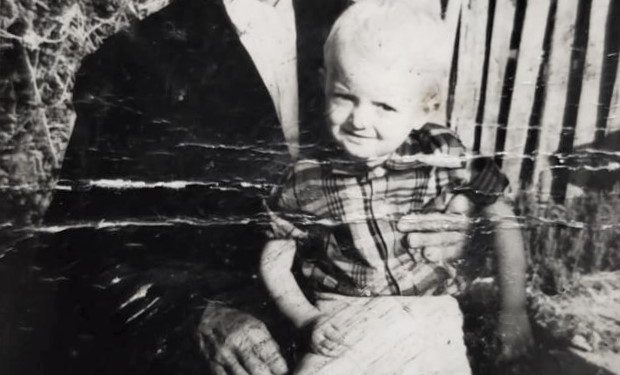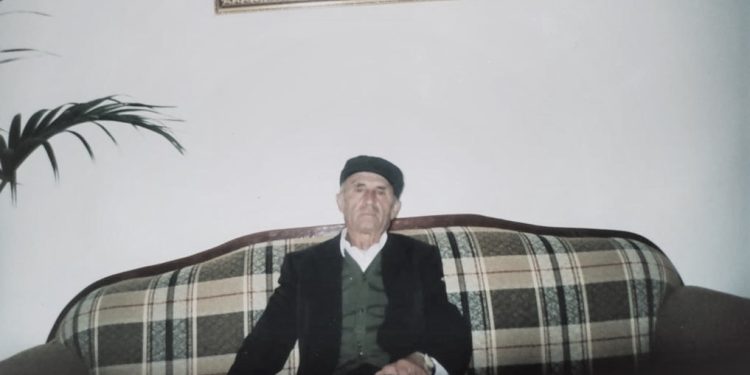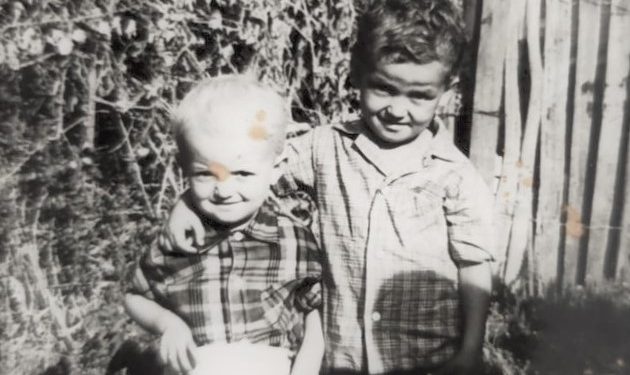By Ani Jaupaj
Memorie.al / The lands that were divided among the villagers in the movie “Our Land” did not belong to the Party. Although the villagers of the area enjoyed their dreams, they knew very well that they were not theirs. They also knew the master. This is the true story of Gjon Nik Syku, the character on whom the well-known writer, Kol Jakova, wrote the drama “Our Land” and which was later made into a film with the same title. But John’s story doesn’t start and end with wealth. When the communist regime would take root, he and all the men of his tribe, who were sworn anti-communists, would be called “enemies of the people”, thus starting one persecution after another.
“In a village in the north of Albania, the agrarian reform returns the land to Loke and her family, which had been acquired by intrigues from Tuç Maku, a large landowner in that area. The conflict between the two families begins. Tuç Maku takes revenge by killing Murrashi, the son of Loke, who was one of the applicants of the agrarian reform. After this tragedy, Lokja returns to her children, Leka and Filja”.
In short, this is the description given to the famous film, “Our Land”, identified mostly by its character “Tuç Makut”. In fact, for those who have only been watching beyond the screen, or those who are now rewatching it for nostalgia or to laugh at the old jokes, everything seems to go well, that the Party distributed the material goods of a family to the benefit of all of you.
It’s not quite what it seems! The Zengjins of that time know it well! They took it on their backs, with all the good things they worked to have and that never became theirs! Even today, the former assets taken by the state have not been returned to them. “Although the story on which the film is based is based on a real character, the character traits are different, because Gjon Nik Syku was not like that.
The film shows a negative character, which is not related to reality. But as can be guessed, from the time when the film and the novel were made, it would have to be as ‘ordered’ – says Lokja, the wife of Prel Sykut, the grandson of the famous character. Even today, the Sykaj tribe continues to live in the village of Rrilë in Lezha, where it has always lived, despite the fact that it never inherited the wealth of the “eldest” of the tribe, Gjon.
At that time, when they were targeted by the government, in their village, Kol Jakova, the author of the book “Our Land”, from which the film takes its events, went to work. “Kola came to our village to work as a teacher, and was assigned to live in the houses of the village for different periods of time. For 3 months or more, he lived in our house and then he also wrote the book”. In fact, their home seems to have been a station that served many crucial names in history.
In addition to Kola Jakovo, also Major Abaz Kupi, in November 1944, stayed with Sykajt on his last day, before leaving his country. Since their house was by the sea, it served him as the closest distance to the sea, from where he would set out the next day. It is here, as collaborators with the anti-communists, that the story of the Sykajs begins, which would not end for all the years of communism to follow, to make all those who bore this last name suffer and feel persecuted. .
Among others, the one who was punished the most after his uncle, Gjon, was Prel Syku, Luke’s husband. The one who was only 12 years old when Abaz Kupi broke into their house, he didn’t even know what coups were against power, anti-communism, and yet he lived half of his young life beyond the barbed wire.
The origin of Tuç Maku in the film “Our Land”
The tribe of Sykajve (Syku) is one of the largest families of the Coast of Mati, who came from Shkreli i Malësi e Madhe, from the end of the century. XVIIIth. Through work they managed to create great wealth, consisting mainly of thousands of cattle and several hundred hectares of land, thus ranking among the wealthiest and most vocal tribes of the north.
The first of this tribe, Gjon Nik Syku (1872-1950), whom the residents of the area but also all his family members, kept as a smart, wise man (he was the one who was considered the first of the tribe in big families) , he was friends with the biggest families of that time, as well as with prominent people such as: Hasan Prishtina, Bajram Curri, Prek Cali, Zef Koka, Shuk Sarreqi, Ded Gjo Luli, etc.
With the arrival of the communist regime in Albania, the prosperous period of this family began, as the regime confiscated their movable and immovable assets. The confiscation of hundreds of hectares of land, which was done to the Sykaj tribe, also became an inspiration for the writer Kol Jakova, to write his work “Our Land”. This work was later made into a film, where the character of Tuç Maku personified Gjon Nik Syku.
The large confiscations that were made to the Sykaj came because of the branding of this tribe as “kulaks”, to be followed by persecution and imprisonment that would accompany them until the capitulation of the communist regime. One of the prominent sons of this family was Prel Syku, who was the first to be targeted by the regime since his youth, as an anti-communist.
Prel Syku, at the age of 20, was arrested and sentenced to 20 years in prison, under the charge of “participation in anti-communist organizations”, of which he suffered 12 years in prison. After a few years in freedom, he marries Luke, the daughter of Gjek Nili, whose family was also a kulak. Prela’s marriage to Luke (at that time 18 years old), was the reinforcement of a good and early relationship of the two families, Syku and Nili.
After the marriage, two daughters were born: Marjana (1969) and Vjollca (1973) and two sons: Sokoli (1975) and Arbeni (1977). After the birth of the little boy, Prela was constantly being monitored by the State Security. Meanwhile, the nephew (uncle’s son) and three other cousins had already been arrested. Therefore, Prela sensed that the next arrest would have been his own, as he was a staunch anti-communist and a young man who had spent time in the prisons of the communist regime.
In April 1977, Prela was called to perform the choir in Tropoja, a right which was taken away by law as a former political convict. After this call, Prela gathers her brother (Ndoci), her daughter-in-law and her sister-in-law, to tell them what dangers awaited them.
The prescribed fate of the family…!
“When Prela gathered us in the room that day, he told us that he expected that, upon reaching Tropoja, he would be arrested. Prela also told us that; if he was not arrested, he would send a telegram in the name of his brother (Ndoc). ‘But if you receive any telegram, which does not come in the name of my brother, you must understand that I have been arrested.’
“After 2-3 days since Prela fled to Tropoja, a telegram arrived at home, which was addressed to me, and which read: ‘I am safe and sound, conducting the choir. Thank you, Prela. This was also the confirmation message for me that my husband was arrested”.
Lukja was only 28 years old, with four children, when he saw every day from the hands of the village postman, to find out the bad he was getting closer to the house. She didn’t know what to do with her or her children. Sometimes they could feed until the evening; sometimes they would fall asleep, missing their father. One of them was very young, only six months old, when his father left without knowing the date of his return. The fate of their family was predicted years ago, since in 1944, their shelter was branded as anti-communist.
“Despite the fact that such a thing was expected to happen, only then did I really begin to understand the gravity of this event. I was only 28 years old, a mother with 4 children, one of whom had serious health problems, while the youngest child was 6 months old. We suffered extreme hunger.
Now the burden weighing on my shoulders was heavier, as my husband was also being arrested and I had to face a reality that seemed almost impossible for me alone. And as if all these negative weights were not enough, the weight of the persecutions that came as a result of my husband’s imprisonment was added to them. So, these persecutions were the expression of deep social contempt and humiliation”.
These memories of Luke, or any of the many who found themselves in positions like hers at the time, are only a very small part of the real experiences. Everything, movies, society, opinion, pointed at them as bad, like the black stamps of a happy society, while no one took the effort or the courage to ask, recognize or help them. Who because he couldn’t and who because he didn’t want to. It’s just that their fate could not be changed.
“Thanks to God, the support of my brother-in-law and parents was not lacking and in this way we managed to survive that ordeal of suffering. Within a few months after the arrest, Prela, together with his cousins, appeared in court. He was sentenced to ten years in prison under the charge of “agitation and propaganda against the people’s power”.
During this 10-year period, he served his sentence in the prison of Qafë-Bar, in that of Spaçi, in the prison of Ballshi, in Tirana and in the prison of Shkodra. Despite the many difficulties, whoever of us could, although more often me went and met almost every month? In the cases when it was impossible for us to visit Prela’s brother or me, he was met by relatives of the family.
Each of the meetings was followed by emotionally and psychologically charged situations, among which we can highlight some situations that Prela now describes as extremely painful. One of the situations was when I had gone to see him together with his eldest son, Sokol, who hadn’t seen him in a year. Sokol, upon seeing his father, said to him: “Since you left, I have been praying to God every night to bring my father home… and here he is.”
The little boy did not even imagine that the meeting with his father would not last more than two hours and that the second parting would be even more painful than the first. It seemed as if his dream had come true once and for all. That they had already all been transferred to prison and would live here.
But when the son left, the dreams would belong to the father. But not for returning home, because he knew his own fate, but for all the words that the children brought to him and that left him sleepless. Because situations like these were different. Prela himself reminds them even now that so many years have passed.
“On another occasion, I was with the little boy, Ben, after Prela had asked me to take him to a meeting, since she hardly knew him; she had left him when he was only 6 months old, when 3 years had passed in the meantime. Since they did not know each other, in order to create rapprochement with his son, he thinks of saying something to cheer him up: ‘How beautiful they bought these sandals’! While the son answers: No dad, the sandals are not mine, I borrowed them from a friend in the neighborhood to meet you’.
In addition to these dramatic situations that often arose, I was also burdened by the tiring physical jobs that were assigned to me in the cooperative where I worked, as a result of being the wife of Prela, this man whom society labeled as the “enemy of the people”.
Despite all the difficulties and sufferings of my husband’s imprisonment, the long-awaited moment of his release came in August 1987. After the prison, God gave us two twin boys. Immediately came the end of the communist regime, together with the end of our persecutions”.
Lukja rushes to arrive at her days when life was real, although youth had passed her by in time. He is ready to forget those jobs that forced him to do in the men’s sector in the canals, that cooperative salary with which he could not feed any of the children, no longer four, let alone arrive at the sunny days.
When she was no longer forced to work in the rain and wind, when, with all the troubles that had befallen her, she had to run from one hospital to another, because of her daughter’s illness, but to rejoice in her six healthy children of her husband who knew her almost from the beginning. Memorie.al




